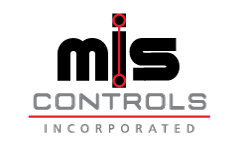
Top 10 Benefits of Using Control Panels in your Business
Control panels are essential components in various industries, serving as the central hub for monitoring and controlling machinery and processes. Their importance in enhancing efficiency, safety, and productivity cannot be overstated. Whether you’re in manufacturing, automation, military, or another sector, control panels in your business operations offers a myriad of advantages. Here are the top 10 benefits of using control panels in your business.
1. Enhanced Operational Efficiency
Benefit: Control panels streamline and automate complex processes, reducing the need for manual intervention. This automation leads to consistent and efficient operations, minimizing human error and increasing overall productivity.
Example: In a manufacturing plant, control panels can automate production lines, ensuring that each step is performed with precision and without delays. Thus, this optimizes output and reducing downtime.
2. Improved Safety
Benefit: Safety is a paramount concern in any industrial setting. Control panels integrate various safety mechanisms, such as emergency shut-offs or alarms, to protect both the equipment and personnel.
Example: A chemical processing facility can use control panels to monitor pressure levels and activate safety protocols automatically if dangerous conditions are detected. This in turn prevents accidents and ensuring a safer working environment.
3. Real-Time Monitoring and Control
Benefit: Control panels provide real-time data on the status of machinery and processes, allowing for immediate adjustments and interventions. This real-time capability ensures that issues can be addressed promptly, maintaining optimal performance.
Example: In the energy sector, control panels enable operators to monitor the performance of wind turbines in real-time, making adjustments to maximize energy output and efficiency.
4. Scalability and Flexibility
Benefit: Modern control panels are designed with scalability in mind, allowing businesses to expand their operations without overhauling existing systems. They can be easily upgraded or modified to meet changing demands.
Example: A water treatment plant can start with a basic control panel setup and gradually add more functionalities and sensors as the facility grows, ensuring that the control system evolves with the business needs.
5. Cost Savings
Benefit: By automating processes and reducing the likelihood of errors and equipment damage, control panels can lead to significant cost savings. They also help in optimizing energy usage, reducing operational costs.
Example: An HVAC system controlled by a sophisticated panel can optimize heating and cooling cycles, reducing energy consumption and lowering utility bills for large commercial buildings.
6. Data Collection and Analysis
Benefit: Control panels collect valuable data on various parameters, which can be analyzed to improve processes, predict maintenance needs, and enhance decision-making.
Example: A pharmaceutical manufacturing company can use data from control panels to ensure compliance with quality standards, analyze production efficiency, and identify areas for improvement.
7. Increased Reliability
Benefit: Control panels are built to ensure the reliable operation of machinery and processes. They reduce the risk of unexpected breakdowns and enhance the longevity of equipment.
Example: In the food and beverage industry, control panels ensure that production lines run smoothly, preventing disruptions.
8. Remote Access and Control
Benefit: Many modern control panels offer remote access capabilities, allowing operators to monitor and control systems from anywhere. This feature is particularly valuable for businesses with multiple locations or remote operations.
Example: An agricultural business can remotely monitor and adjust irrigation systems across vast fields, ensuring optimal water usage and crop health without needing to be physically present.
9. Customization
Benefit: Control panels can be tailored to meet the needs of a business, incorporating functionalities and interfaces that align with requirements.
Example: A packaging company can have a custom control panel designed to integrate seamlessly with its specialized machinery, enhancing the efficiency and precision of the packaging process.
10. Compliance with Regulations
Benefit: Control panels help businesses comply with industry regulations and standards by ensuring that processes are monitored and controlled according to prescribed guidelines.
Example: In the medical device manufacturing industry, control panels ensure that production processes adhere to stringent regulatory standards, maintaining product quality and safety.
Conclusion
Incorporating control panels into your business operations offers numerous benefits, from enhancing efficiency and safety to providing valuable data and ensuring compliance with regulations. As technology continues to advance, the capabilities of control panels will increase, offering more advantages to businesses. By leveraging the power of control panels, companies can achieve greater productivity, cost savings, and overall operational excellence. Contact MIS Controls today to learn more about our Panel Enclosure assembly capabilities.
